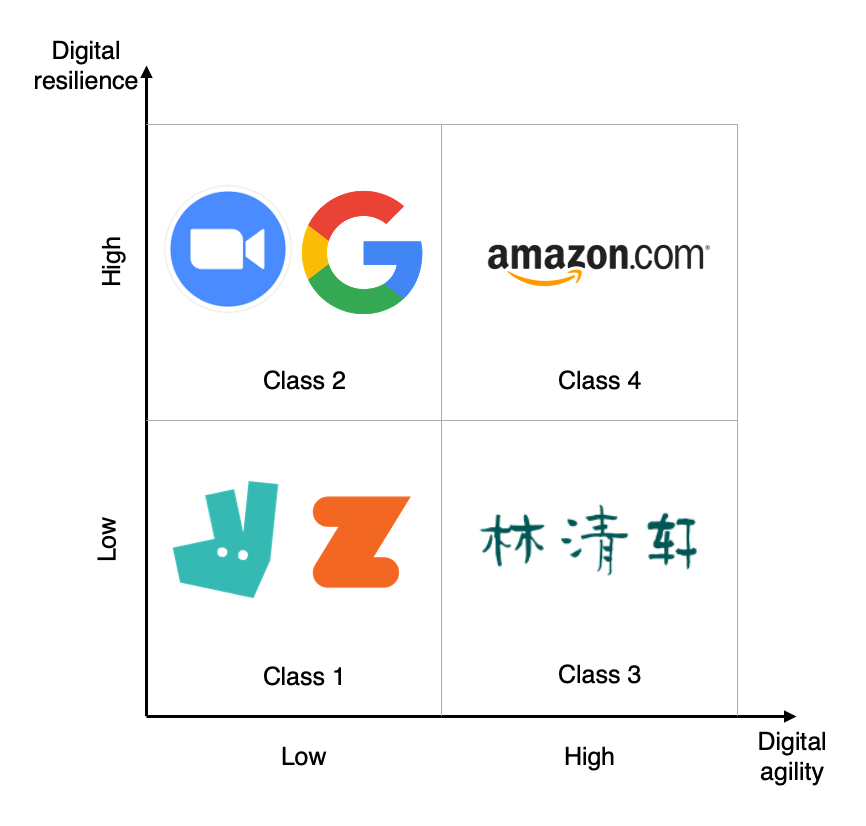
Who are the accidental winners thriving during the unprecedented shake-up of the economy during COVID-19?
Professor Marek Kowalkiewicz is a lead researcher on digital transformation and director of QUT’s Centre for the Digital Economy, classing business organisations into four categories in terms of resilience and agility.
“Amazon is currently one of the strongest examples of not only being flexible with its online retail model, but also developing entirely new digital business models, including the world-first COVID-safe supply chain,” Professor Kowalkiewicz said.
“The organisation combines high digital resilience and high digital agility, reaping new opportunities created by the changing situation.”
Professor Kowalkiewicz (pictured below) will host an online seminar open to the public next week “Digital Transformation: accidental winners or resilient leaders” detailing the four classes of organisations that have either thrived or withered in times of massive change.

Professor Michael Rosemann, director of QUT’s Centre for Future Enterprise, will also discuss how businesses can better prepare for potential disruptions and shake-ups.
Professor Kowalkiewicz said examples of accidental winners included food delivery companies, home gym equipment businesses like Zwift or Tonal but warned their future faced uncertainty.
“They could be categorised in a Class 1 type of organisation, while being digitally sophisticated they are market slaves and don’t have any response options when demand drops. Airbnb is another example,” he said.
Professor Kowalkiewicz said NewsCorp could also be put in the same Class 1 category, as the company was "slaves to demand".
"The announcement by the company to shed jobs and switch to digital-only services was too slow a response," he said.

He said Class 2 organisations can hedge major market changes as they provide digital infrastructure used by a broad portfolio of businesses.
“Digital platforms like Google, Facebook and Zoom fit into this class,” he said.
Professor Kowalkiewicz said recent lockdowns had forced educational institutions like schools and universities to be agile in delivering new business models.
“These institutions are good at responding to problems and challenges modifying their digital business models or creating entirely new ones but have low resilience and fit into a class 3 type of organisation,” he said.
“The Chinese Lin Qingxuan stores were forced to close 40 per cent of their outlets but they retrained more than 100 beauty advisors to become social influencers with sales in Wuhan achieving 200 per cent growth compared to the previous year.”
He said it was surprising to see a huge growth in demand for storage facilities and certain categories of tradies, like AC installers and hinted that non-digital businesses may fall into similar categories.
Professor Marek Kowalkiewicz said organisations powered by digital business models rely on two factors: digital resilience and digital agility.
“Digital resilience of an organisation is its ability to continue delivering value to customers, and therefore realise value for itself, despite any major disruptions, and without any major changes to its current business models,” he said.
“Digital agility of an organisation is its ability to quickly respond to any major disruptions, such that it continues to deliver value, or benefits from any new opportunities to deliver value.”
Media contacts:
Debra Nowland, QUT Media, 07 3138 1150 (Mon/Wed/Thurs) or media@qut.edu.au
After hours: Rose Trapnell, 0407 585 901


